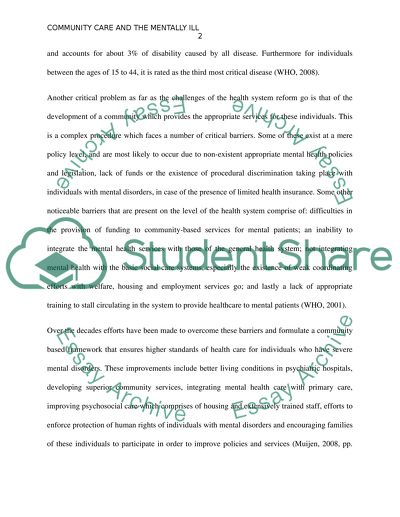Cite this document
(“Community Care and the Mentally Ill Research Paper”, n.d.)
Retrieved from https://studentshare.org/sociology/1447338-community-care-of-mental-patients
Retrieved from https://studentshare.org/sociology/1447338-community-care-of-mental-patients
(Community Care and the Mentally Ill Research Paper)
https://studentshare.org/sociology/1447338-community-care-of-mental-patients.
https://studentshare.org/sociology/1447338-community-care-of-mental-patients.
“Community Care and the Mentally Ill Research Paper”, n.d. https://studentshare.org/sociology/1447338-community-care-of-mental-patients.


